The Guide is a playbook for advocates that seeks to provide them insight and ideas for their efforts to move States to take steps to develop and expand skills-based Supplemental Nutrition Assistance Program Employment & Training (SNAP E&T) in their States that effectively help SNAP participants advance to self-sufficiency. The Guide includes some general advocacy strategies as well as practical information on some of the common roadblocks that may be preventing States from moving forward with building quality SNAP Employment and Training programs. It also includes key messaging on SNAP E&T that may be effective in getting State SNAP agencies to act to expand their programs, and/or in building champions for SNAP E&T who can move States to act.
The brief presents an examination of the initial impact, if any, on States SNAP E&T programs of the passage of WIOA and the opportunity it afforded States to develop new plans for their public workforce systems that align programs such as SNAP E&T with WIOA-supported core programs. It reviews State workforce plans that include SNAP E&T as a partner program. It also presents as a case study the approach of Tennessee, a State that has taken important steps to better align its growing SNAP E&T program with WIOA, both at a strategic and an operational level. Finally, the brief discusses the policies relevant to the alignment of WIOA and SNAP E&T as well as suggestions for integrating these programs in a way that is beneficial to the expansion of job-driven SNAP E&T programs.
SJI has also developed a comprehensive training Toolkit for developing and operating skills-based SNAP Employment and Training programs, based on the success of Washington’s BFET program. Our Sample Toolkit includes the table of contents and a few sections of this step-by-step, resource-rich guide. Interested in the full Toolkit? Contact David Kaz, (206) 628-6974 or dkaz@seattlejobsinit.com.
On July 8, 2014, National Skills Coalition hosted this webinar on the potential of SNAP E&T and how state and local communities can best capitalize on this largely untapped resource. Panelists included: Rachel Gragg, National Skills Coalition; Ed Bolen, Center on Budget and Policy Priorities; Rick Krauss, Consultant, formerly with the Washington State Board for Community & Technical Colleges; Laura Rowley, Seattle Jobs Initiative; and Dr. David Stout, State of South Carolina.
In 2014, SJI completed a definitive overview of Washington State’s BFET program funded by the Annie E. Casey Foundation. This paper provides a history of the program’s initial development and growth; a detailed look at how the program operates; an overview of its outcomes; and a set of best practices and recommendations for other states considering expanding their own SNAP E&T programs.
Theme: Illdy. © Seattle Jobs Initiative. Copyright 2024. All Rights Reserved.
